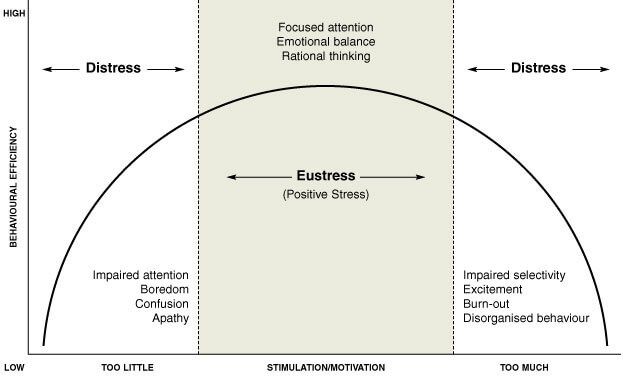When people think of stress, they often associate it with anxiety, fatigue, or burnout. However, not all stress is harmful. In fact, science shows that moderate levels of positive stress, known as eustress, can play a key role in keeping your brain alert, adaptable, and resilient.

Understanding the Science of Eustress
Eustress comes from the Greek prefix eu, meaning “good.” It refers to the kind of stress that challenges you just enough to stay motivated and engaged, without overwhelming your system. Research in neuroscience and psychology has shown that manageable stress helps maintain and even enhance cognitive performance.
When your brain encounters a challenge — like learning a new language, preparing for a big presentation, or solving a tough problem — it releases neurotransmitters such as dopamine, norepinephrine, and epinephrine. These chemicals heighten focus, energy, and mental clarity, helping you perform at your best.

How Stress Shapes the Brain
Short-term, positive stress stimulates neuroplasticity — the brain’s remarkable ability to form and reorganize neural pathways. This process supports memory formation, learning, and problem-solving.
When your brain adapts to new challenges, it becomes more efficient at handling future obstacles. In this way, occasional stress acts like a mental “workout,” strengthening cognitive functions much like exercise strengthens muscles.
The Difference Between Good and Bad Stress
Not all stress produces positive effects. Chronic or excessive stress — often linked to unrelenting pressure, sleep deprivation, or emotional strain — can lead to negative outcomes. Long-term stress elevates cortisol levels, which can impair the hippocampus, the part of the brain responsible for memory and emotional regulation.
The key distinction lies in duration and intensity:
-
Eustress is short-term, motivating, and linked to growth.
-
Distress is long-term, exhausting, and potentially damaging.
Understanding the difference helps you use stress as a tool instead of being controlled by it.

How to Turn Stress Into a Positive Force
You can harness the benefits of eustress by intentionally engaging in activities that challenge you without overwhelming your capacity. Here are a few proven strategies:
-
Set achievable goals: Break big projects into smaller, manageable tasks. This creates progress-based motivation and prevents burnout.
-
Learn new skills: Taking on new challenges — from coding to cooking — stimulates cognitive flexibility and confidence.
-
Step outside your comfort zone: Trying unfamiliar experiences encourages adaptation and emotional resilience.
-
Practice mindfulness and recovery: Balance effort with relaxation. Meditation, deep breathing, and adequate sleep allow your body to reset and recharge.
-
Maintain social connections: Positive relationships buffer against distress and enhance emotional stability.
The Power of Balance
The healthiest minds thrive on balance — alternating between periods of challenge and restoration. Too little stress can lead to boredom and mental stagnation, while too much can cause fatigue and cognitive decline.
Experts in psychology emphasize that humans are wired to respond positively to meaningful challenges. When stress has a purpose — such as pursuing growth, creativity, or connection — it enhances well-being instead of depleting it.
Final Thoughts
Stress, in the right amount, is not the enemy of mental health — it’s a catalyst for growth. When approached wisely, it strengthens the brain’s adaptability, sharpens focus, and improves emotional resilience.
By learning to embrace manageable challenges, pacing yourself with adequate recovery, and keeping perspective, you can transform everyday stress into an ally for long-term brain health.
Your brain doesn’t just survive on calm — it thrives on the right kind of challenge.

